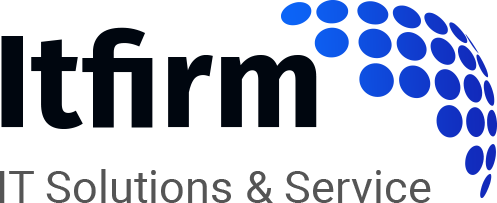20 Common Interview Questions and Answers
Preparing for a job interview can be nerve-wracking, especially when unsure what to expect. As a result, it is every interviewer’s dream to know precisely what the hiring manager will ask them during an interview. Unfortunately, no one can read other people’s minds. Given that every job interview comes with different conditions, there is a specific list of questions hiring managers are likely to ask you during an interview. In this post we will tackle 20 common interview questions and answers.
To help you ace your next interview, we’ve compiled a list of the top common interview questions and answers that will come up in any job interview. From “Tell me about yourself” to “What are your weaknesses?”, we’ll equip you with the knowledge and confidence necessary to impress your interviewer and land your dream job. So put those pre-interview jitters aside because, by the end of this post, you’ll be ready to tackle any question thrown your way!
Below are the 20 common interview questions and answers you should prepare for when job hunting
1. Could you tell me about yourself and briefly describe your background?
In most cases, when an interviewer asks you to tell them about yourself, they are looking to see if you have the communication skills and personality fit for the role. They want to understand who you are and how you would interact with customers, clients, or co-workers.
When preparing your answer to this question, try to focus on examples from your past that illustrate qualities that would be valuable in the role you’re interviewing for. For example, if you’re applying for a customer service position, highlight when you went above and beyond to help a customer or resolve a problem. If you’re interviewing for a sales role, you should share a story about when you closed a big deal or overcame an objection.
A good thumbs rule dictates that you follow a structured format when highlighting your talking points as follows:
- Briefly introduce yourself: What is your name? How long have you been working as [professional]?
- What do you love about your job?
- Give your top 2-3 achievements, which must be relevant to the current job you are interviewing for.
Example 1: “I come from a small village with limited opportunities. Since I could not afford to join college immediately after high school, I started doing casual jobs in my area. I saved the little money I got and enrolled in a certificate course in computing and networking. During this period, I developed the ambition to code and continued studying until I obtained my certification as a computer programmer. After I got my first professional job as a front-end coder, I continued investing more time and resources mastering both front- and back-end languages, tools, and frameworks.”
Example 2: “I am [names], a recent college graduate from [college or university name].
I have just graduated with honors in [Biotechnology]. I know my way around a lab and have had numerous opportunities to put my knowledge into practice as a biotechnology research assistant.
The lab always felt like home throughout my studies, so I’d love to work as a lab assistant in your noble organization. I am passionate, hard-working, and highly responsible. I am also looking forward to putting to practice all the things I learned during my time at university.”
NB: You can check out this guide on how to introduce yourself in a job interview for more insights.
2. How did you hear about this position?
There are a variety of ways that candidates can hear about open positions. The most common method is job postings on websites like LinkedIn, Google.com, Careers.un.org, Cooperate websites, Brighter Monday, Kenyamoja.com, Reliefweb.int, and Impactpool.org, among others. Candidates can also learn about open positions through networking by attending industry events or talking to friends and colleagues. Finally, some candidates may hear about open positions through news sources like the local paper or online job boards.
During an interview, an employer that asks this question mainly aims to know whether you are actively seeking out their company. The recruiter also wants to see if you heard about the open role from a recruiter or were recommended to the company by a current employee. In summary, the recruiter wants to understand how you learned about them.
If someone happens to refer you to the role, ensure you mention their name. Refrain from assuming the interviewer is already aware of the referral. It would also be appropriate to give a follow-up on how the person that referred you is known to you. For example, if John (the person who recommended you) met at a networking event and shared some valuable insights, mention this event to give yourself additional credibility. However, if John is a current company employee, you should explain why he (John) thought you’d be a perfect fit.
However, if you have searched for the role by yourself, you should be clear to the recruiter what caught your eye about the open position. You will earn bonus points if you align your values with the company’s mission. It is your role to assure the hiring manager that you prefer their company over other companies for specific reasons.
Example: “I learned about the job position through a LinkedIn profile. I have been keenly following your company’s page for some time now. For instance, I am passionate about the company’s work in helping the people affected by floods at [name areas], so I got excited to become part of this noble community. The required skills for this role align well with my skills, and it appears like an excellent opportunity for me to contribute to the company’s mission and a great move for my career.”
 3. What type of work environment do you prefer?
3. What type of work environment do you prefer?
Every job applicant has their preferred work surroundings. It is up to you to state what makes you feel comfortable and what you want to achieve in a given work environment. However, you should ensure that your preferred work environment aligns with the company’s culture. To achieve this, you must do your homework about the organization to understand its culture before the interview day. For instance, during your research, you may learn that the companies use a flat organizational structure or prefer a collaborative work culture. These are the keywords to mention when answering this question.
Key features to look out for when studying a company’s culture are:
- Traditional office: This environment is typically found in corporate settings. Employees have their own cubicles or offices and a strict hierarchy. The focus is on productivity and meeting deadlines.
- Open office: This environment type has become more prevalent recently. It encourages collaboration and communication between employees. There are no physical barriers between employees, which promotes a more open working relationship.
- Virtual Office: A virtual office is an alternative to a traditional office setting. With this arrangement, employees can work from home or outside the office. This allows for greater flexibility and freedom regarding work hours and locations.
Example: “I like working in a fast-paced environment because such surroundings make me feel I am always learning something new and growing. Most importantly, I thrive working in a collaborative setting where team members help each other achieve collective organizational goals instead of competing. My last internship was at an organization that embraced a similar work culture, and I enjoyed that balance.”
4. Please walk me through your CV or resume.
When it comes to interviews, one of the most common questions you’ll be asked is to “walk me through your CV or resume.” This is usually one of the first questions in an interview, and it can be an excellent way for the interviewer to get a sense of your qualifications and work experience.
If asked this question, it’s essential to be prepared with a clear and concise answer. It is highly advisable to remember every job experience you have had and identify those that resonate with the current role. Giving such information will help enhance your credibility and the chance of landing the job.
Alternatively, when asked, “Tell me about yourself,” you may begin by highlighting your present job and then follow through by highlighting what brought you to the current company and what you aim to achieve in the next years. However, irrespective of the situation, when speaking about your “past” and “present,” remember to highlight your most relevant experiences that align with the job you are interviewing for.
Example: “Well, just as highlighted in my CV or resume, I have experienced a tough career growth getting to where I am today. I majored in two courses in college – chemistry and communications. Later, I realized working in a lab environment wasn’t’ working for me.
So upon graduating, I got a full-time job at a consumer products company that helped me acquire much teaching experience. I also learned the importance of tailoring the company’s messages to potential clients. Later, I moved to another job where I worked as a sales representative, tasked with teaching recent graduates the basics of selling. My trainees closed more deals in their first quarter than any other trainer’s cohorts. Most importantly, I got more satisfaction from seeing my trainees grow and succeed in their respective roles in the company. This success reminded me of my time at XXX college, which prompted me to pursue an additional certification course in career growth.
Later, I left my full-time job last year to focus on the career growth and development courses over the summer. Now, I am very excited to find a role where I will work as a human resource professional who will impact other employees to advance their careers. Working in your company is my top priority. My skills will help address the employee satisfaction challenge, contributing to high turnover rates in most organizations.”
 5. Why do you want to work at this company?
5. Why do you want to work at this company?
When prompted with this question, the primary goal of the interviewer is to determine whether or not you did your research about the company and the position you are interviewing for. Answering this question accordingly will help the interviewer determine if you are a good fit for the organization. It would be best if you did your homework by studying the company in detail, such as learning about its products, services, mission, history, and work culture.
Besides, in your response, ensure you mention something that appeals to you most about the company. Here is an example of how you could answer this question as a person interviewing for the job:
Example: “I like the company’s mission of paying off student’s college education loans, which resonates well with my ambition of helping others overcome their challenges. I have been on a student loan myself, and my struggle to repay it motivates me to work harder and, if possible, help those who need help. It has always been my priority to find a company with a positive work environment that values helping those who genuinely need assistance. Accordingly, this company ranks high in the priority list.”
6. What makes you unique?
Whenever asked this question, the employer mainly intends to determine the additional advantages that qualify you more than other job applicants interviewing for the same position. As a candidate, you must provide an answer that shows how you will benefit the employer. This means you should refrain from stating how you will likely help from the employer. Besides, considering the challenge of knowing the background of other candidates applying for the same position, it can take time to determine the best way to respond to this question. Therefore, you should prioritize addressing why your background makes you a perfect fit for the role.
To help with your preparation for this question, consider doing the following:
- Find out about the assets the employer considers valuable: For instance, review the job description to identify the responsibilities alongside the required and desired skills, qualities, experience, and qualifications. If the advertised job emphasizes having someone good at cross-collaboration, you can communicate your abilities in uniting teams toward achieving common organizational goals.
- Elaborate on how you have succeeded in your previous positions: This requires you to reflect on your past accomplishments and follow up by listing the qualities that helped you realize those achievements. For instance, if you were recognized for exemplary performance in your marketing skills, you should share this with your prospective employer.
- Identify the traits and skills you’ve previously been praised for: At this point, reviewing and considering the strengths and abilities that previous employers or colleagues often recognized is essential. For example, if you were often recognized for motivating other employees in their respective capacities, mentioning such a trait to your interviewer might be necessary.
Example: “The main trait that makes me unique is my ability to meet and exceed deadlines. In my previous role, my immediate manager always praised me for completing all assigned projects on time and with high quality. These accomplishments encouraged me to take up more responsibilities that eventually resulted in my promotion.”
7. What do you consider to be your greatest strength?
There are a few different ways to answer this question, but the most important thing is, to be honest, and thoughtful in your response. For example, you are detail-oriented, allowing you to catch errors others might miss. Alternatively, you could mention that you’re very good at time management and always meet deadlines. Whatever your strength may be, back it up with a specific example.
Besides, it would be appropriate to narrow down the response to at most three strengths when answering this question. You could also pick 1 or 2 skills that you believe will aid you to excel at the job and then provide 1 or 2 personal skills that are less related to the job.
Still trying to figure out the skills you are strong at? Table 1 provides a list of skills and the type of job they are primarily applicable:
| Job Type | Skill 1 | Skill 2 | Skill 3 | Skill 4 | Skill 5 | Skill 6 |
| Analytical Jobs (Analysis, Software Dev. Etc.) | Critical thinking | Analytical thinking | Problem-solving | Detail-oriented | Logical | |
| Creative Jobs (designer, Marketer, Advertiser, etc.)
| Creative | Originality | Open-minded | Detail-oriented | Curiosity | |
| Management Jobs | Leadership | Organization | Communication skills | Persuasion | Teamwork | Detail-oriented |
| Hands-On-Jobs (Waiter, Cashier, etc.) | Hard-working | Detail-oriented | Motivated | Multi-tasking | Problem-solving | Punctual |
| Communication Jobs (Sales, Customer Support, etc.) | Charisma | Communication skills | Energetic | Persuasion | Witty | Social |
After identifying and picking your strengths, follow by backing them up with a situation or story that indicates how you have used that skill for your benefit on the job. After all, you must remember that words are just words, hence the need to back up your claims with something relatable. Since this is one of the most common interview questions you might be asked, always ensure you get the answer right. Here is the possible solution to this question:
Example: “My primary strength is that I am excellent at learning new skills. For instance, I have worked a variety of odd jobs that I may not primarily be trained to do, such as waiter, housekeeper, cook, and a lot more.
I picked up the necessary skills for most of these jobs to succeed in the role within the first 1 or 2 weeks, with no prior experience or training.
So, in this regard, while I am sure that I don’t have any experience as a bartender, I have the right mindset to acquire the relevant skills within the shortest time, and I believe I will get even better at it within a week or two.”
8. What do you consider to be your weaknesses?
One of the job applicants’ most challenging aspects is assessing and knowing their weaknesses. Despite having a negative impact on your CV or resume, you must be honest when responding to this question. After all, no one wants to mention their shortfalls in an interview, which makes it one of the most challenging questions. It would be best if you came up with an answer that indeed shows your weakness but, at the same time, does not compromise your opportunity to land the job.
Again, don’t be afraid, to be honest – interviews are your chance to show that you’re aware of your weaknesses and taking steps to improve upon them. For example, if you mentioned that you’re inexperienced in a particular area, you could follow up by saying that you’re currently taking classes or working on gaining more experience. If you lack confidence, you could say that you’re working on building your confidence by speaking up more often in meetings, etc. By showing that you’re self-aware and actively trying to improve your weaknesses, you’ll demonstrate that you’re a strong candidate for the job.
Further, you should also know what the employer is looking for when asking this question. Specifically, the recruiter is seeking to learn the following:
- If you have the right skills for the job. For instance, when you are interviewing for a job as a server in a busy restaurant, and you mention that working under pressure is your weakness, you will definitely miss out on this job.
- The employer also wants to know if you are self-aware and know what skills best work for you.
Accordingly, the key to cracking this question is mentioning a natural weakness, but it has to be something that would not get in your way when doing the job. How would you feel when you respond by stating you are bad at math and yet applying for a job as an accountant?
Most importantly, mentioning to the recruiter how you are working towards overcoming that weakness is vital. Try to balance that weakness with a positive side effect. A possible example response to this question is indicated below:
Example: “Well, I am a recent graduate, and my biggest weakness is the lack of real-life work experience. While I have already worked on several software projects at the university, I don’t have the experience of working in a completely agile environment with a highly experienced team. However, I will do my best and catch up soon.”
 9. What is your most outstanding professional achievement?
9. What is your most outstanding professional achievement?
For any person seeking a job, their main strength has an excellent employment track record. With such a record, there is no reason for job seekers to shy off. Besides, many professional achievements can be cited in an interview, depending on the position you are interviewing for.
The STAR method (Situation, Task, Action, Results) best answers this question. This entails setting up a situation, describing a task, describing what you did to accomplish the mission, and concluding with the achieved results. For example, you could say, “In one month, I managed to streamline processes, which helped save my group 10 person-hours each month, and reduced invoice errors by 25%.”
Some standard professional achievements you could cite when asked such a question include:
- Successfully completing a challenging project.
- Being promoted to a leadership role.
- Receiving recognition or awards from your peers or superiors.
- Making a significant impact in your field.
No matter what your most outstanding professional achievement is, be sure to be prepared to discuss it in detail during your interview. This question lets you showcase your skills and accomplishments, so take advantage of it!
10. How do you deal with pressure or stressful situations?
Most employers use this question to assess your problem-solving abilities when tasked to perform specific tasks under pressure. It is better to show than tell, so strive to “show” rather than “tell.” This is also a chance for you to show your human side and ability to persevere in adversity.
Similarly, just like the previous question, it is advisable to stick to the STAR Method when answering this question. Always choose an answer that shows your ability to handle stressful situations head-on, productively, and positively. Most importantly, it would be best to convince your hiring manager to go above and beyond to ensure you can accomplish the set goals. Below is an example of how you can respond to such a question during an interview:
Example: “It was the third day after my immediate boss had gone on a two-week vacation. One of the agency’s highest-paying clients threatened to leave because he didn’t feel he was receiving the personalized service he was promised. During my lunch break, I spent talking with him about his concerns. In our brainstorming session, we even devised ideas for his next campaign. He was so impressed that he signed another six-month contract before my boss returned from his trip.”
Do you need help with any of these interview questions? You found the perfect platform. At CVGarage we specialize in interview preparation and coaching. Get the best, quality, and most affordable help to increase your chances of acing that interview!
11. Do you prefer working independently or in a team?
There is no right or wrong answer when looking at this question from a neutral perspective. This means both sides could have a positive impact, but the backdrop starts with the employer. That means the best answer will depend on understanding the organization and its culture, especially with a connection to the job. However, in most cases, organizational environments operate with some team aspect.
Many job positions require employees to work collaboratively with other employees daily, while employees must work alone in different roles. Accordingly, the secret to answering this question is highlighting your best personality and trait and explaining how they fit well with the job requirements. Besides, it is also in your interest to give a response to the question by stating the advantages and disadvantages of both sides.
Example: “In any work environment, I enjoy the blend of two. Specifically, I like working around a team that will help strategize, give diverse opinions, and reach out for feedback. However, I am also comfortable taking on those assignments that require independent work. Working alone in a focused, quiet environment helps me deliver the best results. Still, I value collaboration with teammates to develop some best and most valuable ideas.”
12. How do you keep yourself organized when balancing multiple projects?
When asked such a question during an interview, the employers aim to evaluate your ability to stay productive and efficient. Besides, the hiring manager seeks to assess if your future employee can stay on track with the work assigned to them beyond the company’s standard schedules and workflow plans. In such a case, you should emphasize your ability to adhere to deadlines and take all assigned tasks seriously.
The best way to respond to this question is by discussing an instance when you managed to stay on track despite the challenging circumstances. For example, you could narrate the relevance and urgency of the project you were assigned to complete within a specific timeframe. Next, explain how you remained organized despite the tight schedule and accomplished the task.
Example: “My current job requires me to juggle multiple projects where I code one software program and another. I use timeboxing to keep them all on track, allocating time for specific tasks on my calendar. This technique helps me prioritize what needs to get done first and holds me accountable for the more repetitive daily tasks.”
 13. What did you do in the last year to improve your knowledge?
13. What did you do in the last year to improve your knowledge?
This is one of the common questions employers ask during interviews to assess whether the applicant is committed to enhancing their career. Specifically, this question was most prevalent in the aftermath of the Covid 19 pandemic, where people spent most of their time indoors. Any job applicant needs to be confident when responding to such a question, especially if one needs to be more active in brushing up their skills or taking up new courses. Everyone can learn from any experience in their lives, and being able to identify such learning experiences and use them to your advantage is much more relevant.
However, if you spent some time improving your professional skills, the following would be a suitable response to such a question:
Example: “The extra time I got in my schedule gave me a prime time to get on track with where I have always wanted to take my career. Notably, I read many journals to keep abreast of the latest valuable ideas in my field, and I also went ahead to sharpen my skills with a few online courses, such as …. [mention the course].”
14. When given this role, what are your salary expectations?
This is another common interview question that interviewers like to ask. As an interviewee, you should know the salary, or at least its range, based on the job specifics before you walk into an interview room. One best way to find out how much the employer is willing to pay is by checking out other websites that offer salary comparisons for specific careers, such as Glassdoor. By reading such information, you will gain valuable insights into salary information. Another way to get such information is to ask other people in the same field or contact your community on the LinkedIn page.
Employers, in most cases, ask this question because every position in the company is already budgeted for, and they are a way to confirm that your expectation aligns with that set budget moving forward. The interviewer must remember that discussing the salary range is much more advisable than giving specific numbers. This option allows one to negotiate for better pay and avoid quoting a very low price than the employer was willing to offer. Most importantly, it is better to error by quoting a higher number, which makes it much easier to negotiate downward.
Example: “As per my current skills and experience and industry rates, I am looking at a salary of around Ksh.XXXX to Ksh.XXXX.” [Fill in the X with your desired salary range]
15. Are you currently applying for other jobs?
Interviewers mostly ask this question to measure your interest in the current job you are interviewing for. If your state, you are also applying for other jobs; it will indicate that the one you are interviewing for is just an option. Don’t let your prospective employer know they are not the top of your choice. Unless you have another better job offer, you should not mention your interest in other job positions in other companies.
Alternatively, you could mention applying to other companies but follow up by instating why you prefer the position your current interviewer offers. This way, the interviewer will know you are actively looking for better options and will be glad you considered them one of the best. Below is how you could respond to such a question:
Example: “Yes, I have recently applied for a couple of other firms. However, this role is really important for me, and I am excited about it right now because it offers more opportunities for me to implement my skills and help the organization realize its goals faster.”
16. From your CV or resume, it appears you took a gap year. Would you like to tell us more about it?
With the competitive job market and an increasing number of people seeking employment, gap years are common in CV or resumes. To some extent, some employers will understand if you provide a genuine response to such a question. However, there are some professions where gap years would have a negative connotation, especially those where the industry moves too fast and one must always to up to date with the latest skills.
In such a case, it is important to inform the employer that the gap was not an outcome of procrastination or reluctance to learn more skills in your industry. Give a genuine response that will make the employer understand where there is a gap in your CV or resume. This is how you could explain your year gap:
Example: “During the last year after my graduation, I felt I was not entirely ready to settle in a job offered in this industry. As a result, I took a wilderness course for some months to sort out my life goals. Though it may sound random, this experience has helped me develop many new skills I can apply in this role, such as leadership, communication, etc.”
17. Do you consider yourself successful?
This question is likely to make any candidate uncomfortable. You may think, “Someone already successful should not be looking for new positions.” Right? This is not always the case. As an applicant, you should consider this question an opportunity to allow the interviewer to know you better and position yourself as the most qualified candidate.
First, always respond with a confident “Yes” when asked this question. Then follow by elaborating on your achievement through one specific profession you are proud of, which can also be tied back to the role you are interviewing for. Make sure the example you choose to elaborate on demonstrates a quality, skill, or experience that will assist you in being successful in the current position.
Besides, you may need to explain why you believe you were successful in the chosen profession. This requires discussing the process or procedures involved, followed by the outcome. If many people were involved in the project, ensure you highlight your achievements first, then state how other team members benefited from the same project. Below is an example of how you could respond to such a question:
Example: “Yes, I consider myself successful even when it is only earlier stages of my profession. While in my junior year, I took full classes because I intended to save time to volunteer in the summer for an organization. I understood that I needed to make serious changes in my study schedule to accommodate the workload and keep on track with my major, minor, and grade requirements. My strategy and determination paid off since I managed to complete the workload within the timeframe and attained a 3.9 GPA, and also got the opportunity to volunteer at the organization. Therefore, for me, success is all about setting a goal and sticking to it, irrespective of the hardships, and this experience has prepared me well for the challenges I may encounter in this current position.”
 18. Where do you see yourself in five years?
18. Where do you see yourself in five years?
When the employer asks you this question during an interview, it is important to be honest, and specific about your future goals. However, it is important to understand first what the employer seeks to know. In most cases, the employer wants to know if you have realistic expectations about your career and ambition and if the currently vacant position aligns well with your goals and growth objectives.
In this case, your best shot of reasoning realistically about where the current job position is likely to take you and give a response along that line. However, what if the available position is not a one-way ticket for you to achieve your aspirations? You can still give a positive response that would amuse your employers. For example, you can state you are still determining what the future holds, but you consider the experience you will gain from the job valuable in helping you make that decision. A perfect response to this question is shown below:
Example: “In five years, I would like to be in a position where I am more aware of my long-term career aspirations as a producer. By this time, I will have acquired more experience working in the film production industry and know more about what this sector entails. I will have grown my filming and directing skills and learned how to manage a different set of actors and incorporate the entire team to produce excellent films. The way this company is set up, it offers more opportunities to learn the skills and achieve the career progression.”
19. How do you handle conflict at work?
This is another interview question that employers might ask during an interview. The question mainly aims to measure your ability to cope or interact with other colleagues or stakeholders, especially with differing opinions. Employers seek individuals with the right skills and experience and want candidates who can effectively collaborate with others. Thus, knowing how to approach conflicts productively will be highly desirable.
The best response to such a question is to inform your employer of when you encountered a conflict with a colleague, client, or manager but resolved it patiently. Besides, it is advisable to rely on what you learned from such an experience and how it has helped you grow personally and professionally. When answering this question, consider using the STAR method:
Example: “As a project manager on an IT project, I had to address an issue with one of the technicians who was consistently missing deadlines. At first, he was defensive, so I chose to stay calm and express how difficult the timescale was. After inquiring how I could help, it turned out that he was pulled away for another job. Consequently, I spoke with his other supervisor and found a suitable resolution to lighten his workload. From then on, the technician performed very well, and what I took from this experience is that you can never be sure what someone might be going through. Therefore, it is important to be objective when handling tricky situations while simultaneously being a good team player.”
20. Why should we hire you?
For too many job seekers, this question may appear like an intimidating tactic. However, this question allows the interviewee to emphasize why they are the best candidates for the job. Accordingly, your response needs to address the skills and experience you will provide to the company and why you are an excellent cultural fit.
In this situation, the most relevant thing to remember is to discuss your fitness for the company. Employers may introduce bias in the hiring process by asking this question to some extent. For example, one may be disqualified because they don’t drink, act, or look like the existing company employees.
A better alternative you may consider using when answering this question is addressing the culture add or your potential to bring the company fresh and additive ideas. Many employers prefer culture adds since they strengthen the company by diversifying experiences and work-related perspectives. A perfect response to this question will be as indicated below:
Example: “As a kitchen manager, I have experience accurately managing inventory intake and am skilled at creating efficient, streamlined schedules. I understand you require a highly organized candidate with acute attention to detail. My previous position involved managing schedules for 30 employees and reducing food waste by 12%. Using my organizational skills, I am confident I will bring efficiency and order to your restaurant.”
Our experts have compiled the above 20 common interview questions and answers to help job seekers better be prepared for interviews. We trust they you will find them helpful.
Do you need any help with any of these interview questions? CVGarage coaches job applicants on interview preparation, CV writing, and LinkedIn profile writing. Let our experts help you build your profile and CV and prepare you for your dream job!
 Situational Job Interview Questions
Situational Job Interview Questions
- Why haven’t you gotten your Bachelor’s Degree/Master’s Degree/Ph.D.?
- Why have you switched jobs so many times?
- How would your boss describe you?
- Are you a risk-taker?
- Why were you fired?
- What do you think our company/organization could do better?
- Do you think there is a difference between hard work and brilliant work?
- How do you feel about working weekends or late hours?
- Why did you change your career path?
- Why did you decide to leave your previous/current job?
- Why is there a gap in your work experience?
- Do you have any severe medical conditions?
- Are you a team player?
- How do you deal with pressure or stressful situation?
- How quickly do you adapt to new technology?
- Do you have any interests outside of work?
Behavioral Job Interview Questions
- Give an example of when you performed well under pressure.
- Give an example of how you have previously handled a challenge in the workplace.
- Give an example of when you showed leadership qualities.
Further, ask your interviewer some questions as a job seeker. Here is a list of possible questions you can ask the recruiter at the end of the interview:
Possible Questions to Ask at the End of the Interview
- What does a regular day in this company look like?
- What sort of budget is there for my department?
- Do you celebrate birthdays or retirements in the office?
- What is the next step in the hiring process?
- What kind of opportunities do you have for future development?
- Is there anything else I can help you with at this stage?
- What’s the worst thing about working for the company?
- What’s the best thing about working for the company?
- What are the biggest challenges a person in this position might face?
- Do employees usually hang out with each other outside of work?
- Do you have training programs available to employees?
- What are the most essential skills and qualities to succeed in this position?
- What do you like best about working in this company?
- What are the most pressing issues and projects must be addressed?
- What are the performance expectations for someone in this position?
- Do departments usually collaborate with one another?
Do you need help with any job interview questions? CVGarage is open to help. Your job search is safe with our affordable, timely, and friendly interview preparation and coaching services! Don’t hesitate to contact us.





 3. What type of work environment do you prefer?
3. What type of work environment do you prefer? 5. Why do you want to work at this company?
5. Why do you want to work at this company? 9. What is your most outstanding professional achievement?
9. What is your most outstanding professional achievement? 13. What did you do in the last year to improve your knowledge?
13. What did you do in the last year to improve your knowledge?  18. Where do you see yourself in five years?
18. Where do you see yourself in five years?  Situational Job Interview Questions
Situational Job Interview Questions